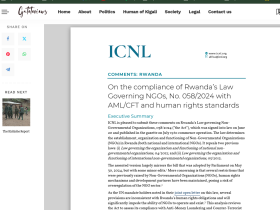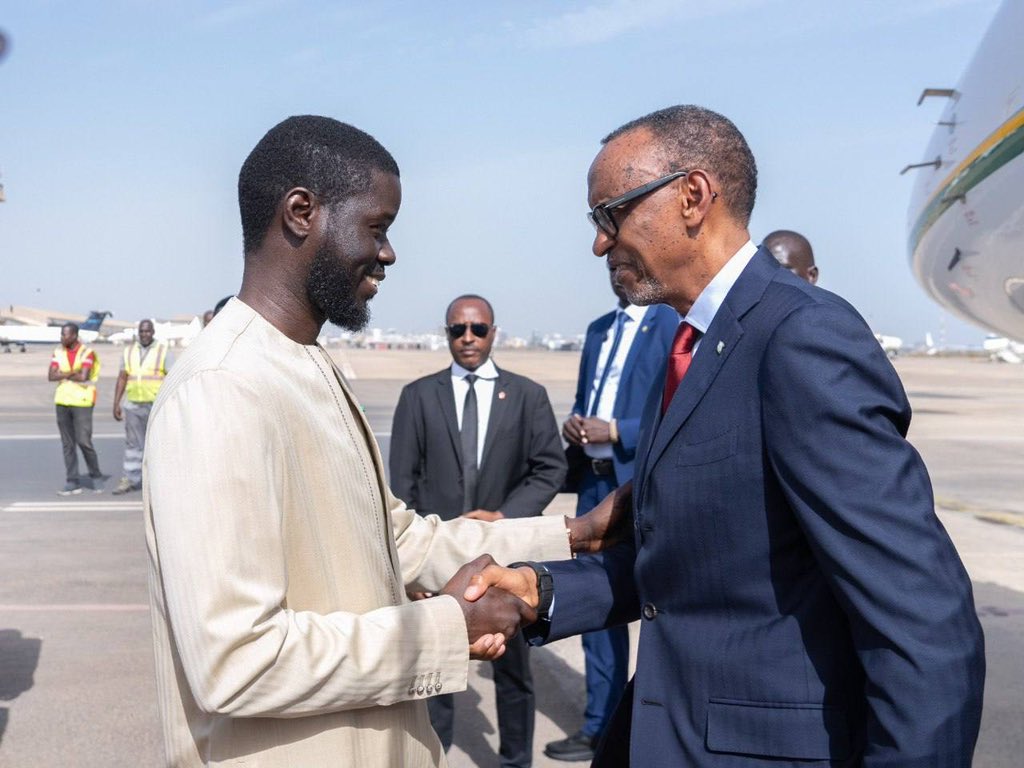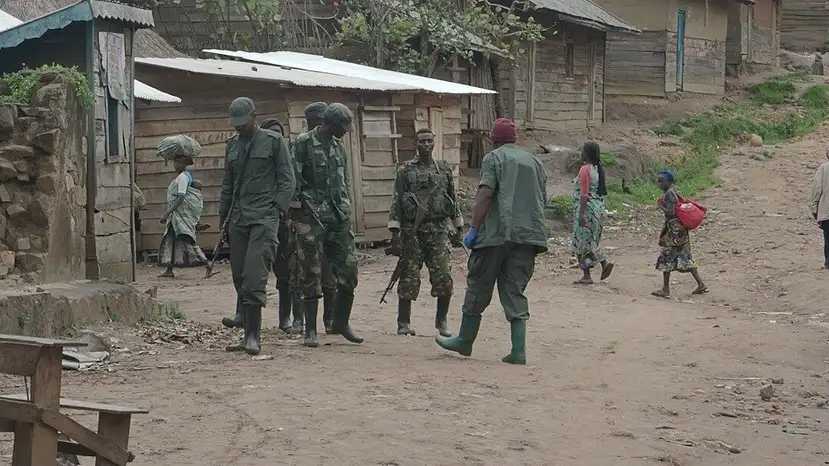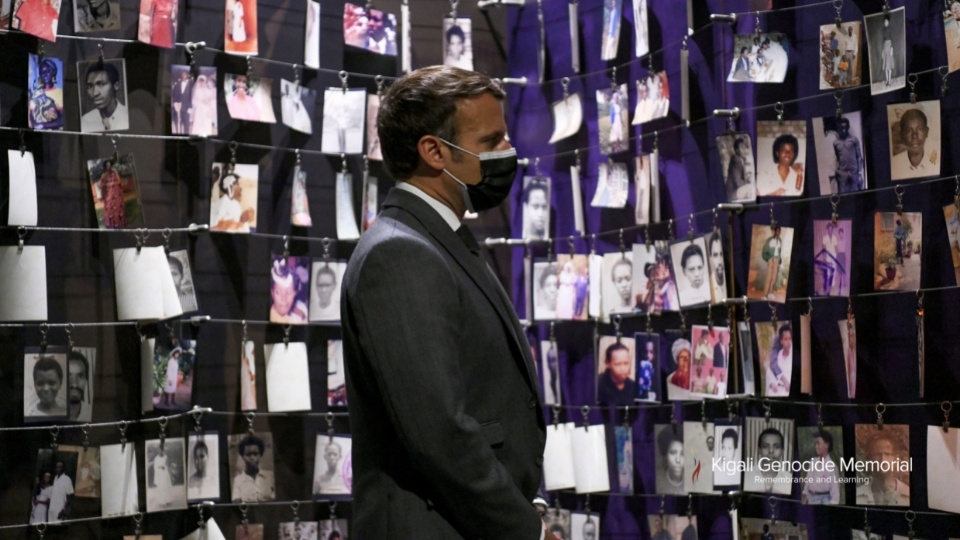20 years ago, Kenyans sat down and reflected on scenari of what their society would look like. They crafted one scenario that predicted a leading industrialised economy that would be among the best in the world, and a number of others. One other scenario they predicted, was that ethnic based politics would lead to violence.
A then poor country, South Korea heard about those scenari and visited Kenya to be introduced to them. They looked at both the one on ethnic-based politics and the one on leading economic power in the world. They chose the latter and departed with it. Twenty years later, as South Korea’s Samsung was finally unseating America’s Apple and Swedish Nokia as the global leading telephone company, Kenya experienced a tragic post-electoral violence that saw the death of over 1000 innocent people. As it turned out, they had implemented the wrong scenario…
What do Africans want: beyond food on the plate and money in the pocket? What is it that an African individual should look like? What is that golden thread that cuts across all African societies? Our forefathers had an idea; The fact that an African proverb: Ubuntu is able to transcend boundaries, cultures and languages is a proof of that.
Gadhafi and Nkrumah wanted one Pan-African state, but they did not furnish it: they did not tell us why we needed it and what it would entail; How would African political, social and economic structures look like? In their days, the only thing they were clear about, was that they both wanted to be its first presidents…
Museveni also wanted to promote barter-trade among Africans; what it actually meant was an economy of scale; a south-south cooperation. The idea was fought because it did not fit the world order of money and the WTO-type free market agenda.
People in the west and Russia had a plan of how they wanted their societies shaped. It entailed capitalism for the former and communism for the latter. The clever thing we thought of at the time was non-alignment to either system: nihilism. For either system to work, its proponents knew they had to sell or impose it to the rest of the world; The two blocks engaged in a long cold war, in which we were used as proxies. When capitalism won, they came for us and found us right where they’d left us: in confusion…
In their systems Europeans wanted the separation of power between the judiciary, the executive and the legislature. They wanted reigning but not governing monarchies and multiparty systems based on elections in universal direct suffrage;
Since then, they have excelled in implementing their systems and prosper; which were tailored to their image: written in their language, consistent with their way of life, adequate to their environment, receptive to their society, and realisable with their resources; but we have failed.
So, can Capitalism work in our society? one that is based on Ubuntu (I am because you are)? What is the system that is adequate for us? Not better or worse, but one that responds to our peculiar needs, and which can take us to that place where we want to be?
The Chinese system is based on a one party state, with leaders elected within the party, and identified before hand for the next fifty years. They know where they are going and how to get there.
As for us, within the current systems, it is difficult for an African politician to plan for the next fifty years, because they know that it is too long a period, that will outlive them. They would rather try to accomplish what is possible within their term, with their means, and which can consolidate the power within their family, ethnic, political or religious group.
During the great Egyptian Empire, the Pharaohs believed in life after death, more than in integrity on earth. For that, they spent their reigns building graves: the Pyramids. They would amass all empire’s precious valuables and the smartest advisors, whom would be locked alive with them in their graves. Building a pyramid took 10-20 years of tedious forced labor, by the time a Pharaoh died, the empire’s economic and human wealth was decimated, the manpower exhausted. But they also considered themselves gods of Egypt; so questioning them was the fastest and most atrocious way to die. This did not stop their heir to start over, thus weakening the empire more. By the time the ottomans attacked, the Egyptian empire was condemned. As it fell though, the pyramids were broken into, the tombs soiled, and the so-called gods’ nicely conserved bodies profaned, as the treasure of a whole nation fell in the hands of strangers.
This, one would think, would have served as a lesson to Mobutu, Bokassa or Zuma, but nooo, they don’t learn… So is success financial? Why is being rich financially what we are taught to aspire for? Is the African perfect person, one that has made a lot of money, acquired a lot of land? Should land be redistributed equally? Or should it all be given back to the state as we all focus on something else.
Should we all aspire for the same things, or should each one be left to aspire for what he wants, like in all liberal democracies? What should the African role models be? What should our youth look up to? What should our musicians glorify? What should our philosophers teach?
Should we be a society based on religion? Which religion? Traditional religions of our forefathers, Christianity, Islam, Atheism? What should we be and why?
Do we need one African state? One African language such as Kiswahili; Should we be further fragmented, with each group pursuing its own ambitions?
Should our legal systems be Gacaca, the Gada – or traditional justice under a tree, or is the current adversarial/inquisitorial judicial systems what we need for ourselves?
I did not have a position yet, except for the fact that we need that reflection; that we need inspiration for how the African society should look like.
I know that I have not been taught what Africa is trying to achieve, beyond addressing immediate, short and medium term challenges; namely poverty and conflict. As a result, it is the adversities that have shaped our societies. So, I cannot blame my parents, teachers and leaders. They have been busy; submerged, grappling with challenging crisis. They are making considerable inroads, and soon those challenges will be addressed. Maybe in the next five to ten years: Peace brought back to DRC and Somalia; etc. And then what? What will happen when most African countries are stable?
Rwanda is saying it wants to achieve freedom from aid and middle-income status within the next five years. That is fine and achievable, but then what?
Unfortunately, there is no manual, nor guideline to be given to incipient states such as South-Sudan and Eritrea on how to shape their societies, or to Africa’s biggest states with huge potential and systemic challenges, such as South Africa, DRC and Nigeria. Africa may not be a country but we certainly share the problems.
We have natural resources. but what do we want to do with them? Have we given it a thought? Should we continue to export them the way they are, should we transform them ourselves and export finished products, should we live them in the ground in the view of current environmental challenges and focus on agriculture and services? Some try to transform them, others export them the way they are and others are not even consulted as their resources are forcefully taken away. But maybe, if the market price was equitable, we can actually export them row, and let others transform them, without us loosing so much?
So we have been sliding along with other peoples’ models, whose contribution to addressing African problems remains predictably minimal. It is interesting that philosophers such as Plato, thought about what a perfect city of Athens should be like. But those thoughts were brought here to define what Lagos, Kigali and Harare would look like…
I am reflecting on this because every time I ask why Africans upon independence, maintained wholesale the designs inherited from the colonialist; I am told that the situation could be worse had we started from scratch. This answer is simply not good enough for me anymore. I am here to say it could be better; it has to be better.
My uncle once told me: the things that you learned in the past which have not served you, you are better off forgetting them to advance. Now is time to unlearn that and relearn.
After devastating wars, people in Europe sat down, discussed how they wanted their society to be. Lets sit, talk, talk and talk; then agree on what it is, that we want to be. The very eloquent priests, pastors and sheiks that we have, will help us teach that to their faithful, while the talented African musicians and dancers will teach it to our youth, and the politicians to all the community; If they can teach what they received in second hand, I am sure they can teach better what is written in their own language…
Posted 5th September 2014


















Leave a Reply